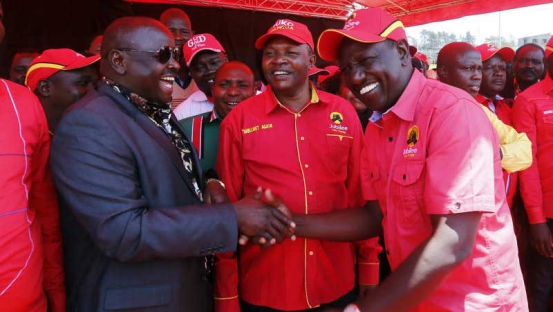×
The Standard e-Paper
Fearless, Trusted News

In the last one week, politicians from the political divide have traded positions between NASA and Jubilee, with the hope of getting a share of the pie.
Tectonic political realignments are ongoing as President Uhuru Kenyatta and Opposition leader Raila prepare for a fresh battle for the presidency.